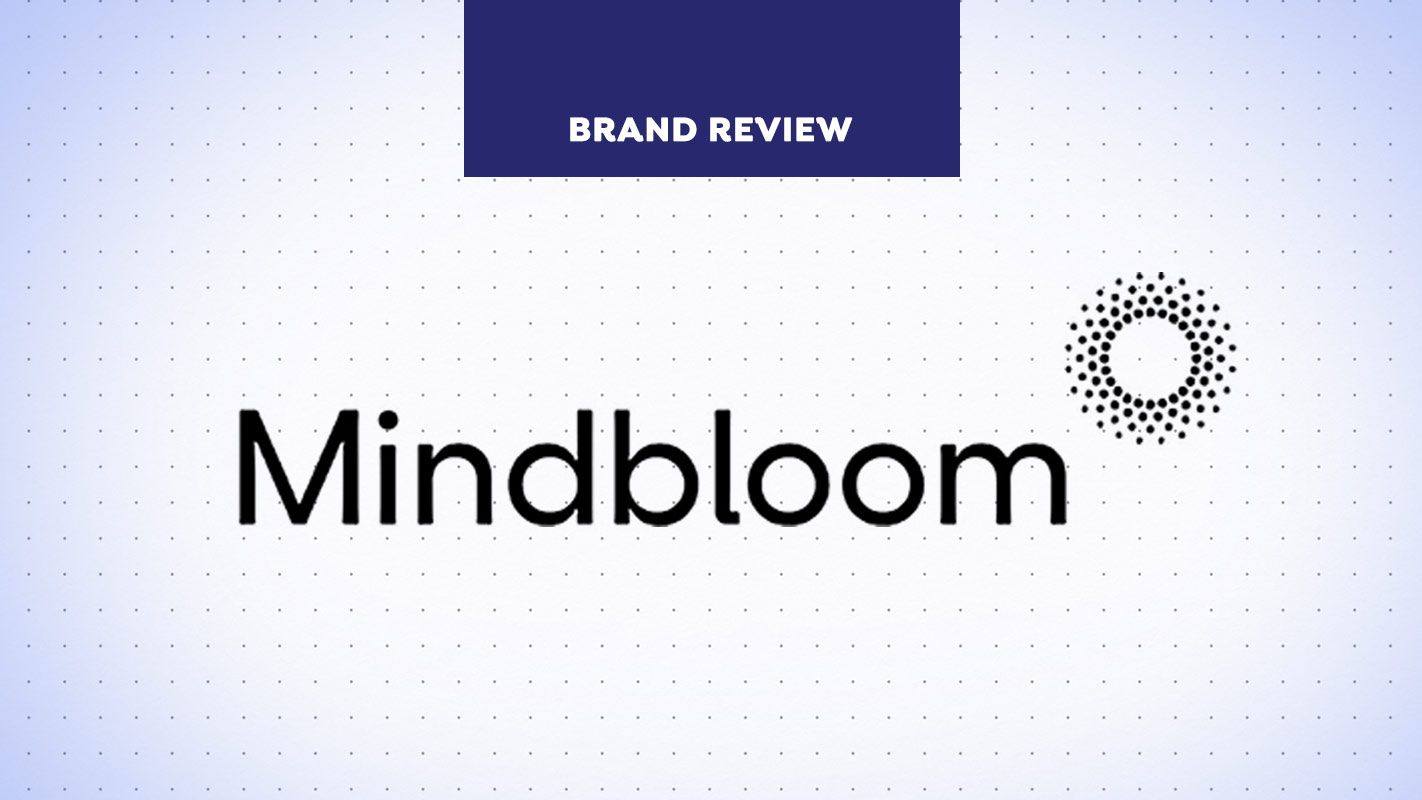
Some of the links on this page may link to our affiliates. Learn more about our ad policies.

Mindbloom – Ketamine Therapy for Anxiety & Depression
-
Overall Rating4/5
-
Products & Services4/5
-
Cost3/5
-
Ease of Use3.5/5
-
Customer Support3.5/5
- At-home ketamine treatment program
- Guided psychedelic therapy to treat anxiety and depression
Mindbloom is an online mental health wellness portal that offers ketamine therapy to its clients. The company uses ketamine off-label to treat anxiety and depression in qualifying adults 18 years of age and older.
Find What You Need
Mindbloom Services
If you’re interested in trying Mindbloom, you will first be asked to complete an online assessment. If Mindbloom believes you’re a candidate you’ll be asked to fill out some patient intake forms and create an account.
After that, you’ll receive a full medical and psychiatric evaluation by a licensed psychiatric clinician via video conferencing who will determine if the treatment is appropriate for you.
Once you’ve been approved for treatment, ketamine will arrive at your door along with what’s called a Bloombox. It contains a blood pressure monitor to help make sure your blood pressure stays in a normal range during treatment. You’ll also receive a journal to write down your intentions before you begin ketamine and your thoughts after treatment, as well as a mask if you want to cover your eyes while taking the drug. Mindbloom will also pair you with a psychiatric clinician and a ‘psychedelic guide’ who will help you through each session. You’ll also have the option of listening to a curated soundtrack during your treatment.
New clients receive six ketamine sessions, but you and your clinician will decide if it’s safe and beneficial for you to continue after your first treatment. It’s recommended to space the treatments out a week apart. It’s also a requirement to have a trusted adult, referred to as a ‘Peer Treatment Monitor’, in the room or the room next to you when you are undergoing ketamine treatment.
The full effect of the ketamine generally lasts between 30 and 45 minutes, but you won’t be able to resume normal daily activities for a few hours after taking it. And Mindbloom requires its clients not to drive or operate heavy machinery until the next day.
In some cases, ketamine therapy can release unprocessed trauma and repressed memories. And while that may seem challenging or unpleasant, Mindbloom clinicians say it can help lead to your overall healing.
All Mindbloom clinicians are licensed in the states where they practice. Prescribing clinicians are registered and licensed by the DEA and are board-certified in psychiatry.
What Medications Are Prescribed by Mindbloom?
Clinicians with Mindbloom prescribe ketamine lozenges that dissolve under the tongue. Ketamine is a dissociative anesthetic with hallucinogenic effects. It works by distorting perceptions of sight and sound and produces feelings of detachment from reality. It allows the person taking it to feel detached from their pain and environment. The effects generally happen within minutes of taking ketamine.
Ketamine can make you feel calm and relaxed, immobile, give you relief from pain and cause amnesia of your time while under its influence. It is important to note that ketamine is not approved by the FDA for the treatment of anxiety or depression. It is prescribed off-label by Mindbloom clinicians.
The side effects include:
- Agitation
- Altered sense of time
- Amnesia
- Anxiety
- Blurred vision
- Cognitive difficulties
- Depression
- Dilated pupils
- Diminished ability to your senses
- Dry mouth
- Elevated blood pressure or heart rate
- Elevated pressure in the eyes or head
- Excitability
- Involuntary rapid eye movement
- Loss of appetite
- Mental confusion
- Nausea
- Restlessness
- Salivation
- Slurred speech
- Stiff muscles
- Tears
- Unconsciousness
- Vomiting
You may also develop Hallucinogen Persisting Perception Disorder (HPPD). This condition, although rare, can cause you to have visual disturbances and distortions for weeks, months and even years, after you stop using ketamine.
If you take too much ketamine and overdose, it can cause unconsciousness and dangerously slow breathing.
Mindbloom recommends that you not take or keep taking ketamine if you experience any of the following:
- An allergic reaction to ketamine
- Bladder problems
- CHF or other serious heart problem
- History of elevated pressure in the eyes or head
- History of hyperthyroidism
- Pregnant, nursing or trying to become pregnant
- Severe breathing problems
- Serious medical illnesses
- Symptoms of psychosis or mania
- Trouble or pain with urination
- Uncontrolled high blood pressure
Ketamine isn’t considered to be addictive, but some people have experienced moderate psychological dependency while taking it. If you have a personal or family history of psychosis, make sure to discuss that with your Mindbloom clinician. Ketamine may not be an appropriate treatment for you.
Mindbloom Customer Reviews
Mindbloom says its outcomes are higher than the outcomes for standard ketamine treatments. They report improvements in anxiety and depression among 65-70% of their patients. To date, the company says it has administered more than 220,000 treatments to patients across the U.S.
Key findings from its clinical study show the following:
- 89% report improvement in anxiety and depression symptoms after four sessions
- 62% report relief from suicidal thoughts after four sessions
- 95% experience no side effects
- 30% report no symptoms of anxiety or depression after four sessions
You will find plenty of positive reviews on trusted consumer websites like TrustPilot. One reviewer said Mindbloom achieved in six sessions what 20 years of therapy couldn’t. Others say their treatments provided breakthroughs and life-changing experiences.
You will find negative feedback, mostly with money being refunded. Although some complaints address the inability to get dosing correct and longer than expected waits to begin or continue treatment.
The company is not BBB accredited, though has an A+ rating with the Better Business Bureau (BBB). Most complaints regard pricing and billing issues, cancellation problems, treatment not being as expected, and other nuances. On Trustpilot, another trusted online review site, most of the complaints are of a similar nature, mostly misunderstandings of Mindbloom’s requirements for treatment, such as having a Peer Treatment Monitor present during all treatments “to support and ensure a comfortable environment that is conducive to healing”. Mindbloom claims most of these misunderstandings may have been overlooked in the Informed Consent all clients are required to sign prior to treatment, as well as discussed on the company’s website.
Mindbloom Cost
New clients of Mindbloom can receive services for $89 a week. The cost for the program is billed monthly and you will receive the following:
- 6 ketamine treatments
- Bloombox
- 2 consultations with a clinician
- 3 guide sessions
- Unlimited guide messaging
- Unlimited group integration sessions
- Ability to add-on virtual integration coaching for $59 for a 45-minute session
If you’ve used Mindbloom before and want to try it again, it will cost you less. Returning customers can receive the All Access package for $49.50 a week. With that you’ll receive the following:
- 18 ketamine treatments
- 3 consultations with a clinician
- 3 guide sessions
- Unlimited guide messaging
- Unlimited group integration sessions
- Ability to add-on virtual integration coaching for $59 for a 45-minute session
The stand-alone program for returning customers is $63.75 a week and you’ll receive:
- 6 ketamine treatments
- 1 consultation with a clinician
- Unlimited guide messaging
- Unlimited group integration sessions
- Ability to add-on virtual integration coaching for $59 for a 45-minute session
You can use your FSA/HSA to pay for the services and Mindbloom will accept your insurance if your provider approves coverage. If your Mindbloom clinician determines the treatment isn’t right for you, you will receive a full refund.
What About Mindbloom Privacy?
Mindbloom says it will not share any of your information with any third party without your consent. The company says its online portal complies with all relevant privacy laws and it uses best practices and standards to ensure security.
In its privacy policy, Mindbloom says it does collect identifiers, like your name, mailing address, phone number, email address and IP address. It will also collect your demographic information, geolocation data, payment information, and internet or electronic activity.
Mindbloom Company Background
Mindbloom was founded in 2018 in New York City by Dylan Beynon. Beynon lost his mother and sister to mental illness, addiction and overdose. He used ketamine therapy as part of his healing process for those personal losses and started Mindbloom as a way to provide ketamine to others.
Mindbloom is currently available in more than 30 states. It’s the first of its kind in the field of psychedelic telemedicine.
The Bottom Line on Mindbloom
Mindbloom clinicians use ketamine therapy to help their clients deal with anxiety and depression. This type of treatment is not right for everyone, and you should seriously consider the effects ketamine can have on your mind and body before joining Mindbloom. The company does work to ensure its clients are good candidates for psychedelic use and reports high success rates for its treatment program.
Content on this site is for reference and information purposes only. Do not rely solely on this content, as it is not a substitute for advice from a licensed healthcare professional. Aging.com assumes no liability for inaccuracies. Consult with your doctor before beginning any medications or programs.



